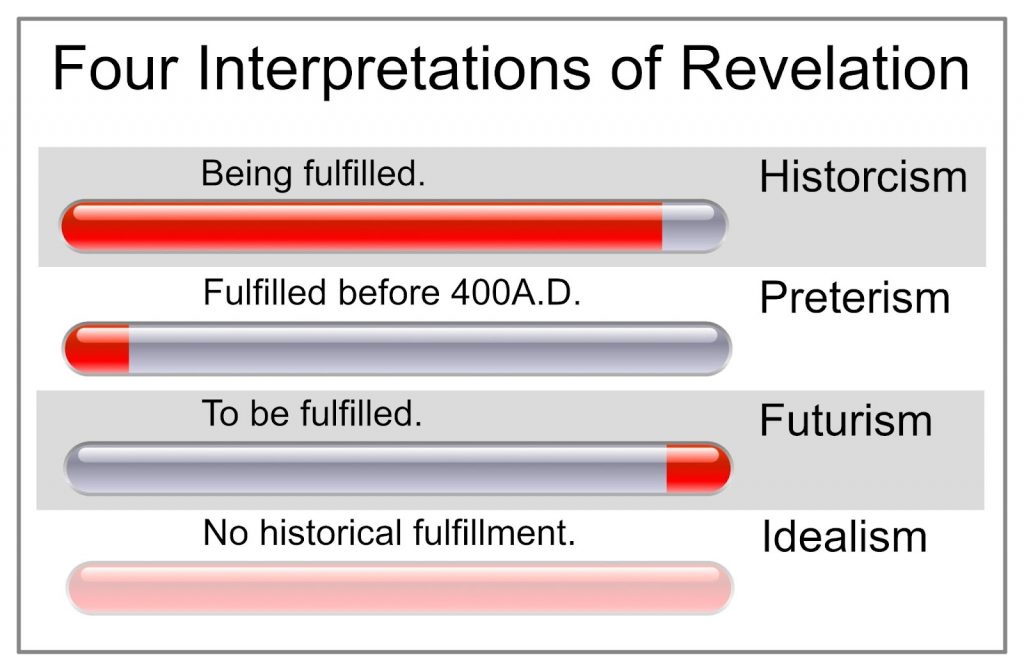The historicist approach, which is the classical Protestant interpretation of the book, sees the book of Revelation as a prewritten record of the course of history from the time of John to the end of the world. Fulfillment is thus considered to be in progress at present and has been unfolding for nearly two thousand years.
The preterist approach views the fulfillment of Revelation’s prophecies as having occurred already, in what is now the ancient past, not long after the author’s own time. Thus the fulfillment was future from the point of view of the inspired author, but it is past from our vantage point in history. Some [partial-preterists] believe that the final chapters of Revelation look forward to the second coming of Christ. Others think that everything in the book reached its culmination in the past.
The futurist approach asserts that the majority of the prophecies of Revelation have never yet been fulfilled and await future fulfillment. Futurist interpreters usually apply everything after chapter 4 to a relatively brief period before the return of Christ.
What is generally called the idealist approach to Revelation does not attempt to find individual fulfillments of the visions but takes Revelation to be a great drama depicting transcendent spiritual realities, such as the perennial conflict between Christ and Satan, between the saints and the antichristian world powers, the heavenly vindication of the martyrs and the final victory of Christ and his saints. Fulfillment is seen either as entirely spiritual or as recurrent, finding representative expression in various historical events throughout the age, rather than in onetime, specific fulfillments. The prophecy is thus rendered applicable to Christians in any age.
(Steve Gregg, “Revelation: Four Views, Revised & Updated”, 13)

